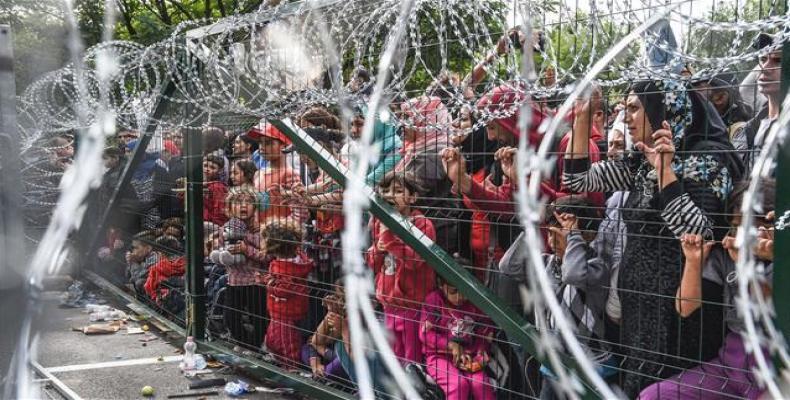Brussels, December 16 (RHC)-- The European Union has unveiled a controversial plan for a new border and coast guard agency to boost security at the borders of the 28-nations bloc. The EU Migration Commissioner Dimitris Avramopoulos said on Tuesday that the package, which allows the agency to intervene even without the host country's consent, is meant to tackle the refugee crisis and boost the security of European citizens.
"The border package we are presenting today will increase security for our citizens and ensure high standards of border management," Avramopoulos said. According to the Commission proposal, the EU agency overseeing the frontiers will be able to intervene immediately in crisis situations. The new body can deploy border guards from the standby pool drawn from other national border guard forces.
Sources say the new force will have a "standing reserve" of 1,500 border guards who can be quickly deployed on European frontiers. It is unlike the current Frontex agency which asks member states for contributions. EU leaders are expected to discuss the proposal at their two-day meeting that starts in Brussels on Thursday. If approved, the new European Border and Coast Guard will replace EU's Frontex agency.
Meanwhile, European Commission Vice President Frans Timmermans has defended the controversial plans, saying it had to restore security threatened by ongoing refugee crisis.
"We cannot exclude that there will still be exceptional situations where a member state is for whichever reason unable to cope with a situation on its own," Timmermans told the European Parliament in Strasbourg on Tuesday, adding, “In such rare cases the agency must be able to quickly step in and assume the management of that specific part of the shared external border."
Nearly one million refugees and migrants have crossed Europe's borders in 2015, mostly people fleeing the war in Syria. The majority have come to Greece on the short sea crossing from Turkey.
The developments also come as European countries reportedly remain divided over how to deal with refugees, most of whom are fleeing conflict-hit zones in the Middle East and Africa.


